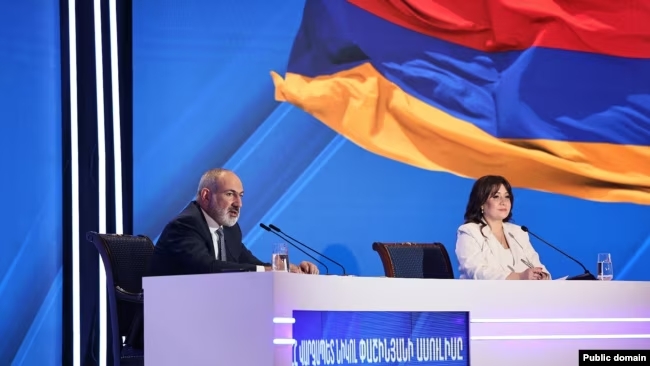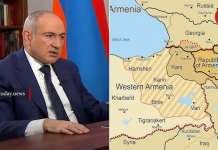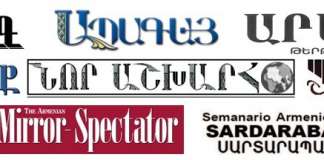By Nane Sahakian published in The Armenian Mirror-Spectator
YEREVAN (Azatutyun) — Azerbaijan’s leadership has essentially rejected Armenian Prime Minister Nikol Pashinyan’s offer to sign soon a framework peace deal and demanded more concessions from Yerevan.
A senior Azerbaijani official indicated that Armenia must not only change its constitution but also downsize its armed forces.
Pashinyan said on Saturday, August 31, that the two countries already fully agree on 13 of the 17 articles of a draft peace treaty they discussed.
“We propose to sign and ratify what has been agreed at this point and to continue discussing all remaining issues,” he told reporters. He said the agreed provisions cover “all basic principles of peace between Armenia and Azerbaijan.”
Azerbaijani Foreign Minister Jeyhun Bayramov said on Monday, September 2, that Baku received fresh peace proposals from Yerevan reflecting Pashinyan’s offer just hours before the Armenian premier met the press.
“Several important points were left out of the text presented by them,” Azerbaijani news agencies quoted Bayramov as saying. “Their draft treaty does not include important provisions and we were told that this is the problem’s solution [proposed by Yerevan.] In the context of the past historical conflict, every provision of the peace treaty is very important. Our advice to the Armenian side is to approach these issues more seriously.”
Bayramov as well as Azerbaijani President Ilham Aliyev’s top foreign policy aide, Hikmet Hajiyev, reiterated Baku’s demands for a change of Armenia’s constitution which they say contains territorial claims to Azerbaijan.
“Until this changes, we will see serious problems in negotiating a peace treaty between the two states,” Hajiyev told reporters on Sunday. He dismissed Pashinyan’s assertion that it is the Azerbaijani constitution that lays claim to Armenian territory.
Hajiyev also said that “restrictions should be imposed to the armed forces of Armenia.” The international community has slapped such sanctions on other “aggressor states” such as Saddam Hussein’s Iraq, he said. Bayramov likewise complained about what he called Armenia’s “intensive” military buildup, saying it poses another hurdle to peace.
Hajiyev said Yerevan should also end the European Union’s monitoring mission along Armenia’s border with Azerbaijan launched in February 2023. He argued that Baku and Yerevan reached on Friday a fresh agreement on the border’s delimitation.
Meanwhile, Armenian opposition leaders denounced Pashinyan’s offer to sign a partial peace deal with Azerbaijan, saying that it would not commit Baku to recognizing Armenia’s borders. They claimed that Pashinyan is desperate to sign even such an incomplete document in hopes of misleading Armenians into thinking that he has achieved peace and thus increasing his chances of holding on to power.
Opposition groups had similarly condemned Pashinyan for ceding several disputed border areas to Azerbaijan this spring. They said the land transfer will only encourage Baku to demand more Armenian concessions.
Aliyev renewed his demands for a change of the Armenian constitution shortly after the announcement of the unilateral transfer. In July, he again described much of modern-day Armenia as “western Azerbaijan” and said Yerevan must ensure the safe return of ethnic Azerbaijanis who had fled it in the late 1980s.
















